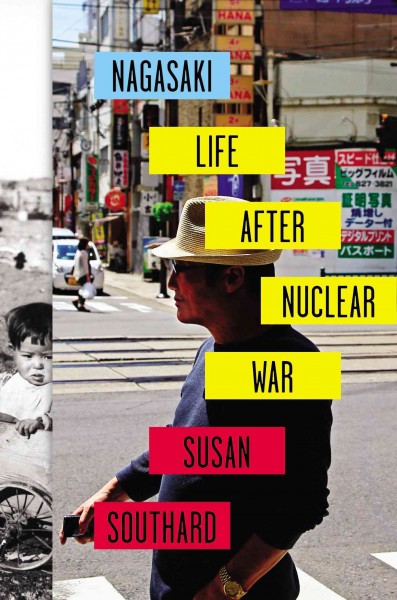This year marks many anniversaries of note. The battle of Waterloo happened 200 years ago, Hurricane Katrina was 10 years ago, and the atomic bombings of Nagasaki and Hiroshima were 70 years ago. It’s strange to think about. The bombings are not so recent that most of us remember them, nor are they so long ago that they feel ancient. So why do we need another history lesson to remember them? Trust me, this book has the answer.
 One thing that really pulled me into Susan Southard’s book Nagasaki: Life After Nuclear War, is that it reads more like a story with 5 main characters, who were all teenagers at the time of the bombing. The book bounces back and forth through these people and what happened August 9, 1945 and in the days and years afterward. Since most of us have read and watched many war survival stories, and witnessed the incredible hardship and injustice people have faced, I’ll try not to focus on that; because this story is about much more.
One thing that really pulled me into Susan Southard’s book Nagasaki: Life After Nuclear War, is that it reads more like a story with 5 main characters, who were all teenagers at the time of the bombing. The book bounces back and forth through these people and what happened August 9, 1945 and in the days and years afterward. Since most of us have read and watched many war survival stories, and witnessed the incredible hardship and injustice people have faced, I’ll try not to focus on that; because this story is about much more.
For one thing, this book is about how different atomic warfare is from other types of destruction. Nuclear bombs carry strange and long-lasting effects. To get a general idea of their impact, consider this: it would only take about 10 megatons of nuclear bombs to severely cripple the US and about 50-100 to wipe us out almost completely. Besides the raw firepower, radiation poisoning has appeared to last at least 30 years and cause genetic and cancerous diseases. Because of this, the people who were exposed became known as hibakusha or “bomb affected people”. This name became like a warning to others, who would ostracize the hibakusha because they feared catching radiation from them. Reading about these things was almost surreal; I wanted to think that something like this could only happen in movies. It was just plain scary.
But this book is also about five individual people. They grow, they change, they survive, and like I said, the story reads like a novel. One part of the book I think about a lot was when Masahiro Sasaki said that he and other hibakusha must not be called “victims,” for that traps all thinking on the subject in the past. He said, when a child once asked him which nation dropped the atomic bombs, “I can’t remember. God has allowed me to forget. Only the future matters.”
I was pretty surprised when I read that quote. How can someone just forget something so horrible? I’m still not sure I agree with it. But at the same time, I can’t forget that this book is not an apology from the US but simply factual accounts of what happened. I think that’s another reason I like this book so much. I’m not being told what to believe, I’m just hearing the truth and being allowed to think about it myself.
So as you can guess, I really like reading history. The stories of people’s lives in a time and place I’ve never been have always fascinated me. And while there are plenty of history books I want other people to read, there are a few I think everyone should read. I think this would be a great book to teach in schools, and a great book that will fascinate you and may teach you a whole new perspective on things.


Comments are closed.